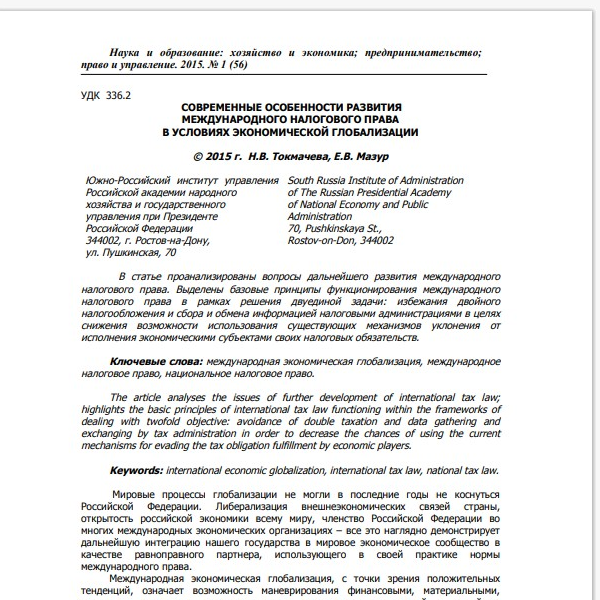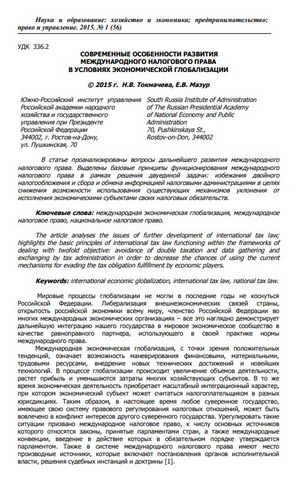Описание
- Введение
Цель исследования, представленного в статье И.И. Голочаловой и В.И. Цуркану, заключается в разработке концептуального подхода к бухгалтерскому учету вознаграждений на основе акций в контексте инновационной экономики. Основное внимание авторы уделяют правовым и экономическим аспектам признания таких вознаграждений в качестве капитала, а также предлагают модель бухгалтерского учета, соответствующую международным стандартам финансовой отчетности (МСФО). Это исследование актуально, поскольку понятие человеческого капитала и его оценка становятся все более значимыми в условиях быстро развивающейся инновационной экономики.
- Методология
В исследовании авторы применяют концептуальный подход, охватывающий правовые и экономические рамки признания вознаграждений на основе акций как капитала. Методология включает анализ юридических аспектов, связывающих труд и капитал, а также изучение концепций менеджмента капитала. Используются теоретические исследования, построенные на работах как зарубежных, так и отечественных ученых в области теории капитала и бухгалтерского учета.
- Основные результаты
Ключевые находки исследования подтверждают правомочность признания вознаграждений на основе акций в качестве капитала на основании прав собственности и обязательств. Авторы обосновывают свои выводы анализом существующих теорий капитала, подчеркивая двойственную сущность человеческого капитала как затратного и активного ресурса. Статистическая значимость результатов подтверждается ссылками на теоретические модели и практические примеры.
- Обсуждение и интерпретация
Анализ результатов показывает, что вознаграждения на основе акций должны рассматриваться как реинвестированная прибыль, не уменьшающая размер собственного капитала на отчетную дату. Это подтверждает необходимость корректной оценки человеческого капитала в контексте финансовой отчетности. Результаты исследования согласуются с предыдущими работами в данной области, отмечая сопряжение теорий капитала и трудов основоположников теории человеческого капитала.
- Заключение
Основные выводы статьи подчеркивают актуальность признания вознаграждений на основе акций как капитала. Практическая значимость результатов заключается в улучшении достоверности финансовой отчетности путем внедрения предложенной модели учета. Основные ограничения исследования связаны с отсутствием единой методологии оценки вознаграждений, а также необходимостью дальнейшего изучения механизмов налогообложения таких операций. Рекомендуется продолжать исследования в этой области, чтобы разработать стандартизированный подход к учету и налогообложению вознаграждений на основе акций.
- Ключевые слова и термины
Вознаграждения на основе акций, человеческий капитал, признание, реинвестированная прибыль, концепция оценки по справедливой стоимости, методология бухгалтерского учета.
- Библиография
Среди ключевых источников, на которые ссылаются авторы, можно выделить труды таких ученых, как Г. Беккер, Л. Мизес, М. Пятов и Э. Хендриксен, что подчеркивает широкий академический контекст, в котором развивается данное исследование.


Отзывы
Отзывов пока нет.